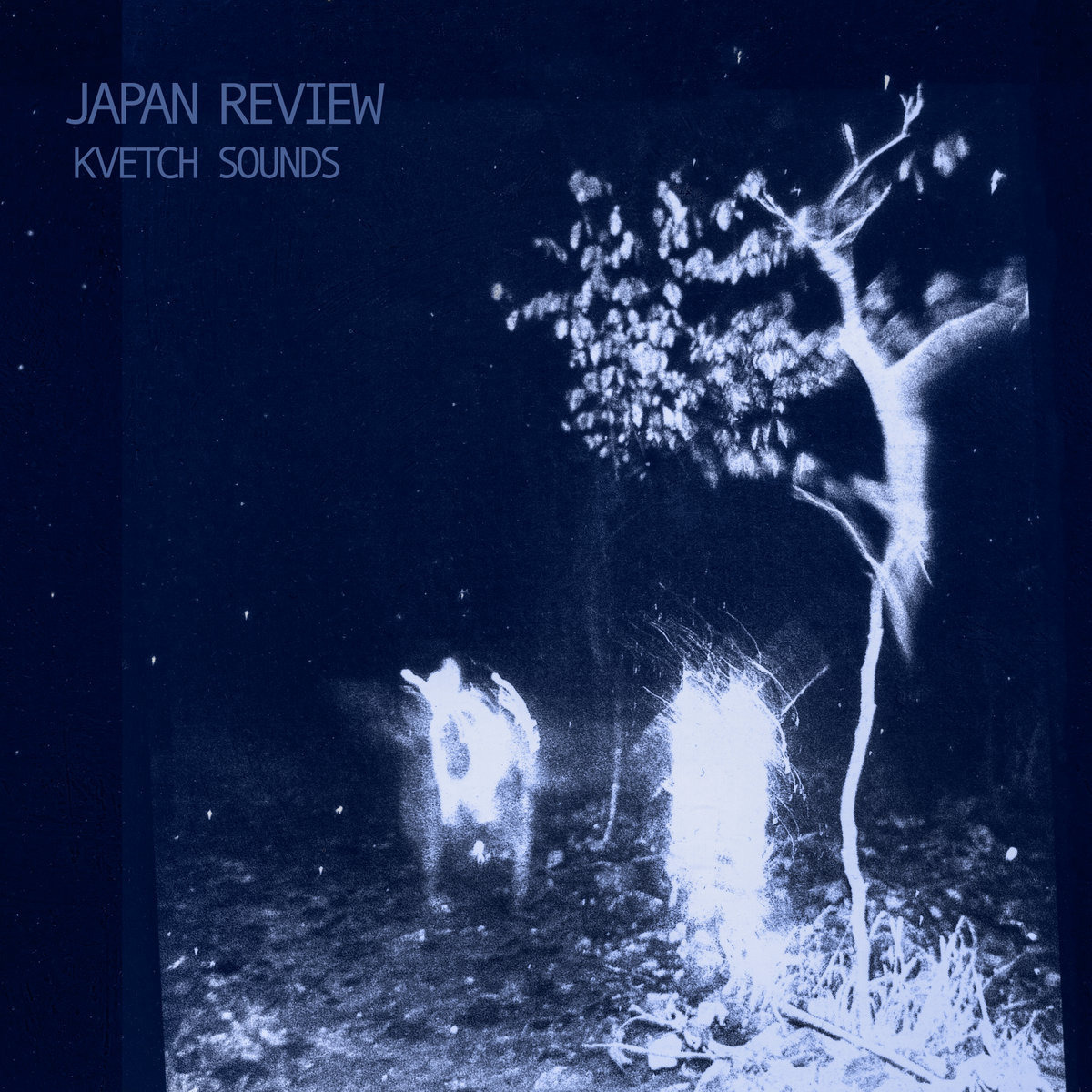Unless you’re closely familiar with Yiddish, the title for the debut album by Glasgow-based band Japan Review might prove impenetrable. ‘Kvetch’ means “a person who complains a great deal”, or someone who “complains persistently”. When you then find out that Japan Review were inspired by The Beach Boys’ mastermind Brian Wilson and My Bloody Valentine’s genius Kevin Shields, you begin to understand the “Kvetch” usage: both are notoriously fastidious artists, pure perfectionists, prone to intense denseness, albeit using different musical formulas.
The sounds that Japan Review – the pairing of Adam O’Sullivan and Genna Foden – conjure on Kvetch Sounds are, of course, nowhere near as layered as the work of Wilson or Shields, but there’s a lot to be admired in the depths of their songs that caress the line between shoegaze and electronic pop; not so much an impenetrable fog as a penetrable one.
After beginning as the solo endeavour of O’Sullivan, the band went through various incarnations before settling with multi-instrumentalist Foden as the only other permanent member. Their collaboration feels very natural, feeling for where the melody should go rather than overtly guiding it there themselves.
After the opener “Colours”, which feels like a woozy and weary wake up, the title track is a standout: a clattering drum beat is the base for sharp guitars to unravel over the top, the track driving forth with meaning. “Channel Waves” boasts a similarly controlled drum beat and it’s something Japan Review utilises well. The opening drumline in “The Weather Underground” might be too close to The Jesus and Mary Chain’s classic “Just Like Honey”, but it’s impressive nonetheless.
The softer palette of “To Only” is a sweet respite in the middle of the album, a tender slice of lo-fi melancholia that feels wistful and jaded. It doesn’t last long though, the darkwave energy of “Competition Winner” soon roars into play.
O’Sullivan’s vocals are a curious thing throughout. They are clearly not meant to dominate, haunting the hazy shoegaze atmosphere like a subtle spectre. It’s frequently murky but a tired ache is detected when his delivery is noticed; on “Screen Language” he even sounds nervous, jittery even.
The shimmering synths vibrate with intensity in the closing track “Modern Radio”, as the slow burn of Kvetch Sounds comes to an end. There’s enough intricate interplay and understanding of shoegaze mechanics to make this a promising debut from Japan Review; as long as O’Sullivan and Foden stick to their pairing, any sophomore record should hold intriguing notes.

